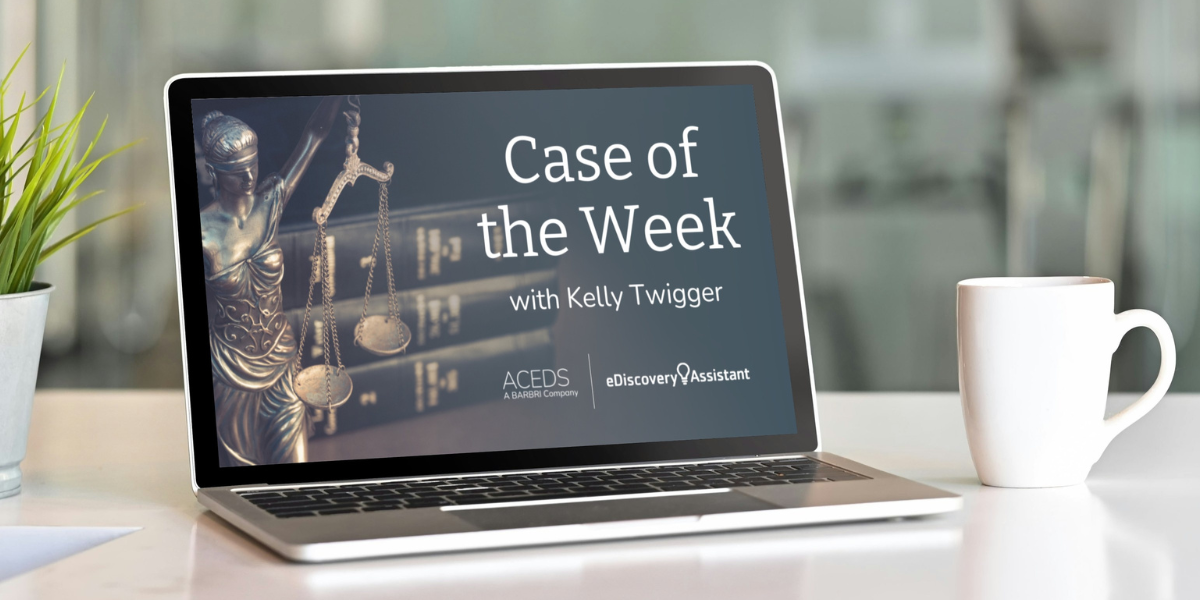In complex litigation, understanding when a document is protected by attorney-client privilege can be challenging, especially when privilege issues arise in multidistrict litigation (MDL) like the In re Uber Technologies, Inc. Passenger Sexual Assault Litigation. In this case, Magistrate Judge Lisa Cisneros of the United States District Court grappled with key privilege issues surrounding the inadvertent production of documents and the application of attorney-client privilege under California law. Below, we’ll explore the Court’s analysis and discuss takeaways for litigators facing similar privilege questions.
Case Background
The case involves a discovery dispute over three documents and attachments that Uber inadvertently produced in the MDL. These documents had previously been withheld on the basis of privilege in earlier sexual assault litigation. Both parties adhered to their agreed clawback protocol, but the plaintiffs contested the privilege claims over certain emails and a safety criteria update created by Uber’s communications and public policy teams.
Two of the documents were emails from an internal thread where Uber’s in-house counsel was later added to provide legal advice on policy changes. Plaintiffs challenged the privilege for emails sent before the in-house counsel’s involvement. The third document was a safety criteria communications plan, prepared by non-lawyers, which Uber argued was privileged because it was later reviewed by in-house counsel.
Analysis: Applying the Dominant Purpose Test
California law governs privilege claims in civil matters, and under the California Evidence Code, attorney-client privilege applies only to confidential communications between a client and lawyer during the course of their relationship. The “dominant purpose” test, a focal point in this decision, looks at whether the primary purpose of a communication was for obtaining legal advice. If the dominant purpose was attorney-client, privilege applies—even to factual information. However, merely sending a document to counsel or labeling it as privileged does not automatically confer privilege.
Court’s Findings on the Documents
- Emails Before In-House Counsel Joined the Thread: These emails were not privileged because they were routine business communications that did not become privileged simply by adding counsel later.
- Safety Criteria Communications Plan: The Court found that this document, initially created by Uber’s public policy team, did not become privileged when it was sent to in-house counsel. Since the plan was a business document, not created with an attorney-client relationship in mind, Uber’s claim of privilege was denied.
Key Takeaways for Litigators
- Understand the Dominant Purpose Test: In California (and likely in other jurisdictions with similar standards), the dominant purpose of the communication dictates privilege. If the communication was primarily business-related, sending it to counsel afterward does not retroactively make it privileged. This test underscores the need to differentiate between business and legal advice when claiming privilege.
- Prepare for Nuanced Privilege Analysis: For each document or attachment, litigators must analyze the context of its creation, timing, and involvement of legal counsel. Complex privilege analyses require diligence, often leading to costly and time-consuming review processes, especially in cases with high volumes of electronically stored information (ESI).
- Develop Clear Clawback Protocols: Inadvertent production is common in large-scale discovery. Having a clear, effective clawback process like the one in place here helps streamline dispute resolution, allowing parties to quickly focus the Court on the relevant issues, saving both time and resources.
- Utilize Letter Briefs for Efficiency: Traditional motion practice is often slow, and discovery disputes demand timely resolution. Letter briefs, like those used here, offer a faster path to court decisions on pressing discovery matters. Where allowed, ask your court to implement this process—it’s beneficial for both judicial efficiency and case progression.
- Educate Courts on Discovery Needs: Judges may not be aware of the critical nature of expedited decisions in discovery disputes. Advocating for streamlined resolution processes, like letter briefs, not only aids your case but helps the court manage its docket effectively.
- Consider Technological Solutions: Privilege review can be labor-intensive and expensive. While categorical privilege logs may not reduce these costs, emerging AI solutions hold promise for automating parts of the privilege review process. Staying informed about technological advancements may offer more efficient solutions in the near future.
Conclusion
This case reinforces the importance of a clear understanding of privilege standards, the value of strong clawback protocols, and the need for strategic approaches to discovery. By taking a proactive stance on privilege issues and leveraging efficient discovery processes, litigators can better manage costs, protect client interests, and keep their cases on track.


